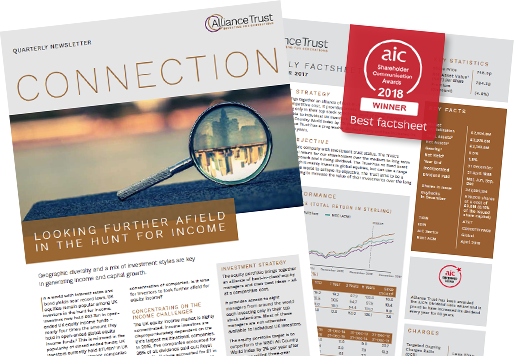The power of active stock picking in times of crisis
PUBLISHED ON FEBRUARY 2021
Much has been written of the trials and tribulations of 2020 and the impact on financial markets and investors’ fortunes. With markets bottoming out last March as the pain of the Covid-19 outbreak struck across the world, before recovering amid loosening restrictions, it was hardly an easy year to stay on top of every market movement. The early days of 2021 suggest this uncertainty and the challenges it poses for investors is set to continue, at least in the short to medium term. The peaks and troughs faced by investment portfolios have certainly caused a measure of pain and unease as stock pickers navigated a fast-moving landscape, but as with any market downturn it also opened up a swathe of opportunities. In markets such as the US, long considered by many to be overpriced, the fall in values marked a prime opportunity to buy strong companies whose values had been punished by a global slump in markets.
It is in times of crisis that active stock picking comes to the fore as market stress events can provide the bedrock for strong future performance.
Active stock pickers are always on the lookout for company developments, be they big or small, that could affect the value of a share price. Crucially, they are also analysing how market movements impact stocks. They question how a downturn might affect the share price of a business, or if a market surge means that a company is overvalued. Equally they must also consider if a sudden fall in a share price value is warranted, or instead marks an overreaction that opens up a significant opportunity. Market panic events, with increased volatility and sentiment driving decisions, can often create such opportunities for skilled stock pickers.
A prime example of this process in action is in the addition of new stocks to the Alliance Trust global equity portfolio by one its multi-managers, C.T. Fitzpatrick of Vulcan Value Partners. Market volatility last year suited investors such as Fitzpatrick who seek out inherently stable businesses and wait for their share price to become discounted. With many companies over valued, market falls gave Fitzpatrick the opportunity to buy shares in companies well-placed to compound their value in future at very attractive levels. Among them was Skyworks, a semi-conductor manufacturer which reported a 16% year-on-year revenue increase in 2020 and is well placed to become a leading light in its sector. Another ‘buy’ was Transdigm Group, an aerospace company hit hard by the limitations on international travel during the pandemic but one which is expected to rebound quickly once travel picks up again in the recovery.
During this heightened volatility in markets, even the steadiest of investment managers have increased the turnover within portfolios over the last year. Portfolio turnover is a way to measure how often a fund buys and sells stocks, calculated by taking the total amount of stocks bought or sold, whichever is less, and dividing by the fund’s net asset value (NAV). The higher the figure, the greater the turnover and the more stocks have been bought or sold.
For the Alliance Trust global equity portfolio, managed by Willis Towers Watson, this volatility translated into a marked increase in portfolio turnover. Over the course of 2020, the monthly portfolio turnover hit a high of 13.5% in March, versus an average monthly level of turnover of around 4% in the years since the appointment of Willis Towers Watson in 2017.
The highly volatile nature of markets this year has kept stock pickers on their toes, and has gone some way to highlight the potential perils of sole exposure to passive index tracker funds. Current markets are increasingly concentrated in a small number of mega-cap technology names such as Apple, Microsoft, Amazon, Google and Facebook. These stocks have grown to represent a significant weight within passive indices over recent years and last year further benefitted from the onslaught of the Covid-19 pandemic. While an active manager could take a view on the real, long-term prospects of stocks such as these, and change their view based on new developments, a passive index fund must hold them, regardless of value, risk, or outlook.
One of the other potential issues with traditional passive funds is that they include a lot of very carbon-intensive industries and companies that will find it difficult to transition to a low carbon world in the fight against climate change being encouraged by governments and regulators around the world. Skilled active stock pickers that fully integrate ESG thinking into their process have the opportunity to consider the implications of this in the value they put on each company being considered for investment. The Alliance Trust portfolio has a much lower carbon intensity than the benchmark as a result of this.
At the simplest level, however, while at the mercy of the whims of market sentiment, there is little that can be done to protect an index fund amid sudden sharp falls in markets, and as a result little that can be done to protect the investor.
Of course, active managers cannot guarantee they will not be hit by falls in a company’s value – not everyone gets everything right all the time – but skilled stock pickers do have the knowledge and insight to judge the good from the bad opportunities, and to hold the companies they own to account, which is key if you are to protect your investment pot from the vagaries of market sentiment and work to unlock greater value.
As markets continue to move to the beat of world-changing events, active stock picking remains the way to pick the companies you feel are set to be winners, while attempting to avoid those with the potential to mark up losses. In times of crisis, ‘controlling the controllables’ becomes all the more important, and it is at times such as these that active stock pickers can prove their worth, and showcase the value they offer in a world often split between the ‘active’ and ‘passive’ worlds of investing.






